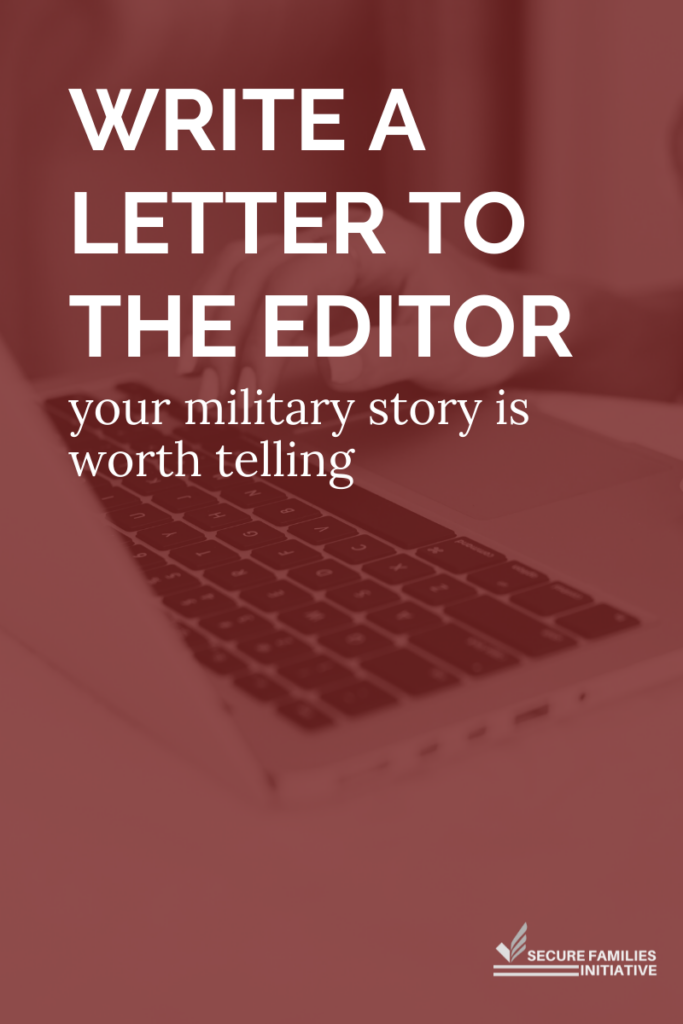At Secure Families Initiative, our theory of change is centered on the importance of military-connected folks telling our stories. Only 1% of the population serves in the military, and we cannot expect civilians to understand our experiences unless we share them. Writing a letter to the editor this fall in honor of Veterans Day is a valuable opportunity to tell your unique story.
Think about a military issue that resonates with you and let that guide your letter-writing. From outdated war authorizations and demands of a high operational tempo, to military spouse career challenges and military child education reform… we have a lot of stories worth telling.
We have a great example to get you brainstorming your own Letter to the Editor: last year our volunteer, Erin, wrote a reflection called “My First Veterans Day as a Veteran’s Spouse.”
Why Submit a Letter to the Editor?
A Letter to the Editor (LTE) is a quick blurb that newspapers publish to give a snapshot of life from a member of the community. It provides a personal perspective on broad, difficult issues. A strong LTE on the local level can be persuasive and reach people in a way that traditional news stories and national pundits never will.
That’s why we’re encouraging YOU to write a Letter to the Editor for your local publication! Veterans Day is a great “hook” to get the attention of newspaper editors about military issues. It’s a great time to share what you wish our civilian neighbors understood about military service and sacrifice.
How to Submit a Letter to the Editor?
Step 1: Decide where you want to submit your letter. Your best bet will be picking a local news outlet where you either live or vote. (For example, a Nebraska resident pitching to the Omaha World Herald or the Lincoln Star!) Make sure to include your relevant address in the submission.
Step 2: Look them up online. Every news outlet is different, so once you’ve identified your target outlet, check out their website — usually under a section called “Letters to the Editor,” “Opinion,” “Commentary,” or something like that. That should tell you what their word limit is (typically 250 words) and the submission form or email address you should send to.
Step 3: Prep your letter. What’s the important message that you wish your neighbors knew, and what makes your perspective unique? A lot of civilian communities appreciate learning about their military neighbors, so focus on your unique experience.
**Pro tip: Draft your letter in a Word document first so you don’t lose your progress!**
Step 4: Send and wait!


